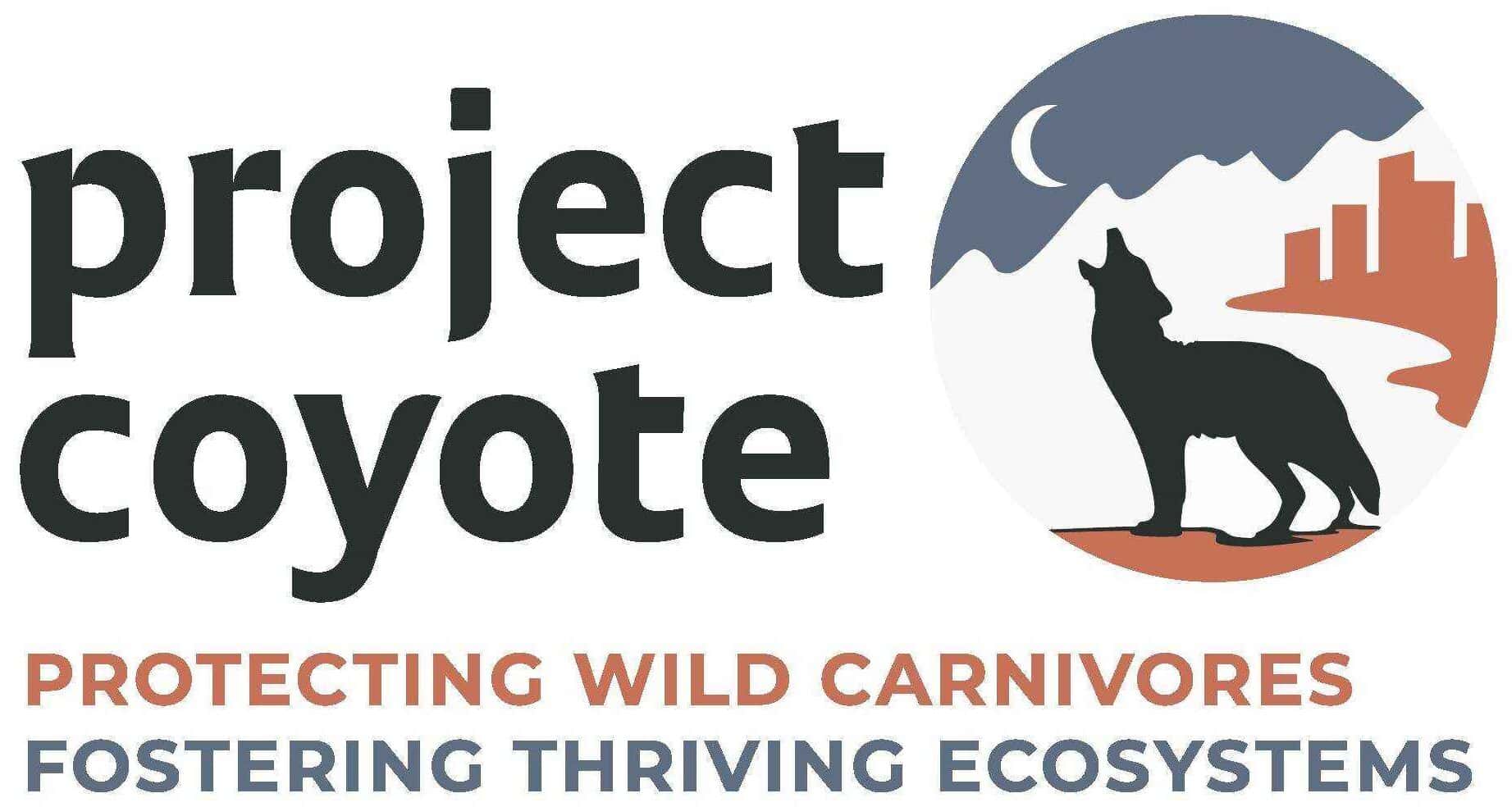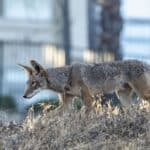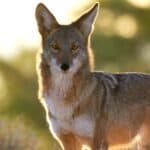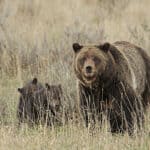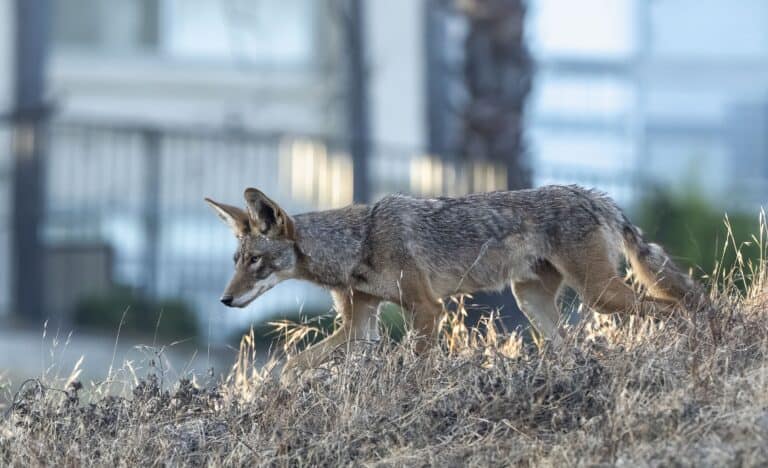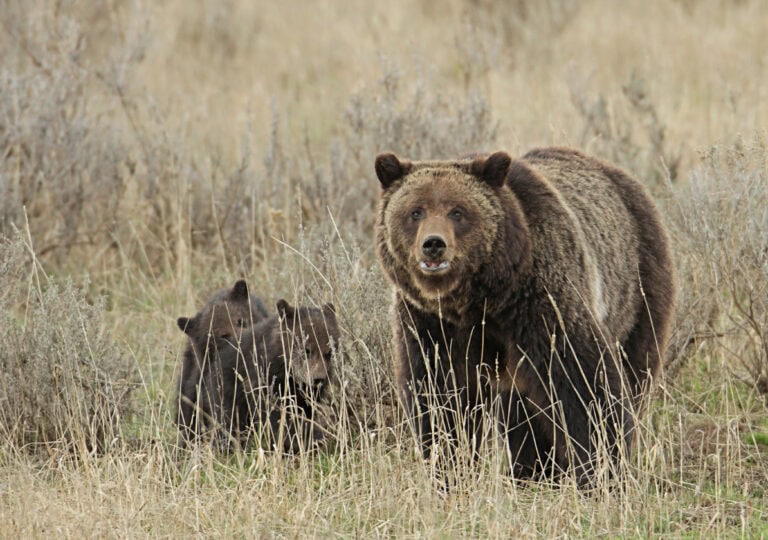Voice your support for bears to the California Fish & Game Commission before Thursday, April 21
The California grizzly was hunted to extinction nearly a century ago. Now, the state is failing to protect California black bears from hunting, despite bear killing being unethical and relying on dubious claims about the health of the population.
The California Department of Fish & Wildlife has reported population declines of up to 67%, but continues to approve the hunting of black bears. They are considering increasing hunting opportunities even though black bears are already facing extreme hardship from wildfires, drought, and vehicle accidents.
Our partners at the Humane Society of the United States petitioned the California Fish and Game Commission (CFGC) (petition 2021/2022-027) to enact a moratorium on bear hunting, citing concerns over the health and viability of the state’s diminishing black bear population as well as lack of adequate science. The commission plans to vote on the petition at the next public meeting on Thursday, April 21.
Let CFGC know that killing black bears is ethically and scientifically indefensible!
HERE ARE WAYS YOU CAN SPEAK UP:
1) If you haven’t already, sign our coalition’s petition in support of ending black bear hunting.
2) Please take a minute to send a personalized written comment to the CFGC supporting petition 2021/2022-027 and an end to bear killing. Commission members need to hear from you! Written comments will be accepted until the workshop date (see below) from both in- and out-of-state citizens. Written comments received before 5 p.m. Thursday, April 7 will be made available to Commissioners prior to the meeting, while those received before noon Friday, April 15 will be made available during the meeting.
3) Attend the CFGC virtual workshop on April 20-21 (see agenda and further meeting details) to discuss the petition asking for a moratorium on bear hunting. There will be an opportunity for public comments during the agenda item for our issue (30(B)(II) in agenda).
- Use the ‘raise hand’ function in zoom to enter the queue to speak (see picture of Desktop app below. Reaction button may be elsewhere on phone app).
- When you are called on, share your testimony asking the Commissioners to approve the petition, using the talking points provided in the public comment letter we submitted to CFGC and below. Plan to keep your testimony to 1-2 minutes. You can request additional time to speak by emailing the Commission by Friday, April 15.
Talking points (remember to personalize your message and be respectful):
- The state’s black bear population is in trouble. Given the uncertainties, stopping human-caused mortality should be prioritized over hunter demand. Current methods to estimate the state’s black bear population, based on age-at-harvest models, are outdated and unreliable indexes of the state’s population. The model has reported consistently lower population estimates and growth rates since 2013, suggesting the population is in decline.
- Additionally, the department’s black bear take report for 2020 estimates the state’s black bear population at 15,934 (and potentially as low as 9,771), which is at least half of the “conservatively estimated” 30,000-40,000 bears listed on the CDFW website.
- Bears reproduce very slowly and are highly susceptible to overkill. A female only reaches adulthood at approximately 4 years of age. She then gives birth to 2-3 cubs/year and has litters only every 2-3 years (depending on food resources, which are compromised by increasingly wildfires and drought). Trophy hunters target breeding adults, which disrupts the animals’ social structure and further slows reproduction.
- Extreme climate events catalyzed by climate change, such as record-level wildfires in 2021, late season frosts, and droughts, have negative impacts on bears, in particular through habitat destruction and reductions in food sources. Although these events seem to be increasing in frequency, they are not considered in population estimates. Population modeling fails to consider super-additive mortality brought about by extreme climate events and anthropogenic factors, such as surges in deaths by vehicle strikes. These events disproportionately affect females, some with cubs.
- Hunter demand cannot be the primary driver of wildlife management when bear hunters constitute less than 1 percent of Californians. Instead, the agency should holistically consider science, ethics and the broad public interest in protection and coexistence rather than killing. Caving to hunter demand prioritizes minority values and attitudes to which the majority of the public is increasingly opposed, and diminishes the non-hunting publics’ experience in nature. If you are an out-of-state advocate, please mention your appreciation of healthy, living black bears and other wildlife enjoying the wild when you visit CA and spend your tourism dollars here.
- Hunters tend to hunt in their own local territories, and issuing two bear tags to already successful hunters may exacerbate human-caused mortality in certain areas, with harmful effects to bear social structure which may increase mortality further (i.e, super-additive). Female bears frequently remain close to their birth territories. Increased hunting pressure on the same landscape may not only increase the risk of killing local females, but the risk of new males killing cubs. A mother bear may then have to move to a less suitable habitat where there are fewer resources and a higher risk of conflict with humans. These issues have not been considered within the petition.
- Most Californians already oppose black bear hunting, and a majority supports the outright ban of hunting black bears (according to a poll conducted by Remington Research Group for the Humane Society of the United States). Yet this proposal goes beyond ignoring the values of most Californians by promoting the opposite views and harmful behaviors towards cherished wildlife. Moreover, past black bear management documents note that bear hunting (the season comprises a third of the year) monopolizes public lands, and excludes both public lands conservationists and more sustainable activities, such as wildlife watching.
- Current scientific understanding acknowledges bears as feeling, thinking, self-aware beings that undoubtedly value their lives and wellbeing. They also contribute community benefits through their top-down regulatory effects on ecosystems. Accordingly, ethical coexistence demands respect and consideration for bears in relevant policies and regulations. Both the Commission and the CDFW have acknowledged the intrinsic value of native carnivores, and their policies should reflect that recognition. Increasing opportunities to kill more bears explicitly promotes views that run contrary to ethical coexistence and holistic scientific understanding.
Thank you for acting today to protect California’s bears!
Camilla H. Fox
Founder & Executive Director
Francisco J. Santiago-Ávila, PhD
Big River Connectivity Science & Conservation Manager
